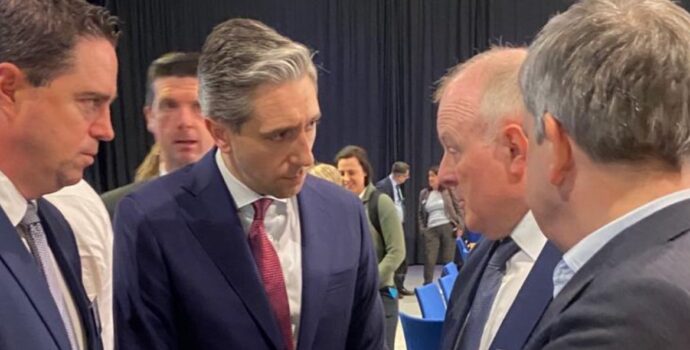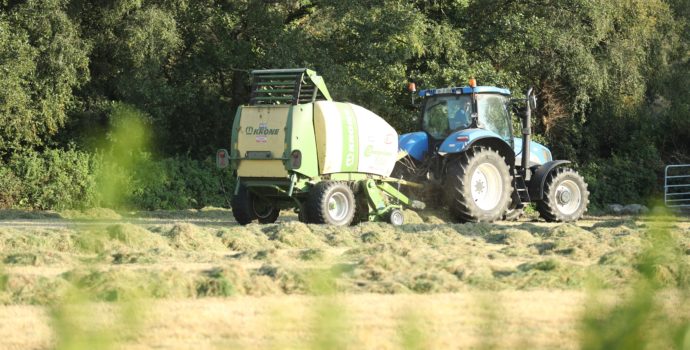Exclusion of Farmers from Proposed Energy Support Scheme Totally Unacceptable

IFA President Tim Cullinan said that he understands that the Government intends to exclude farmers from the proposed Direct Energy Support Scheme reported in the media yesterday.
“It is completely unacceptable, and a further blow to a farming sector greatly exposed by the cost of living crisis” he said.
“Irish farmers have been hit with on a number of fronts with fertilizer, fuel and feed prices amongst others taking an unsustainable rise in prices so these reports of farmers being excluded from the Energy Support Scheme are completely unacceptable,” Tim Cullinan said.
Ahead of the return of the Ploughing Championships tomorrow, he said the CSO figures show that farming costs are up nearly 40% since last year, compared to inflation at 10% and questions the thinking behind the exclusion of farmers from the scheme.
“Energy costs are up significantly and farmers are increasingly concerned about the bills they will face this winter. Farmers’ electricity bills have increased by 40% according to the CSO and their fertiliser costs are up 133% because of the energy market. The Government has signalled that next week’s Budget will recognise the seriousness of the situation, but clearly, they have disregarded the enormous pressure that farms and farm families around Ireland are under,” he said.
“There’s huge fear and uncertainty among farmers. Rising input prices are eroding on-farm margins, and output prices across many sectors are under increased pressure. It’s relentless and the upcoming additional hikes in electricity prices, which are not yet factored in, will only make matters worse. The Government must reconsider any decision to exclude farming from the Direct Energy Support Scheme,” he said.
Meeting the 25% sectoral emission ceiling will be extremely challenging for farmers. New measures to reverse the decline in afforestation are also needed and a new ‘Roof-top Solar Scheme’ and ‘Anaerobic Digestion Support Scheme’, financed by the Department of Environment, Climate & Communications, independent of TAMS, would help boost increased investment in renewable energy sources.
“The economic sustainability of suckler farms is based on direct income support. The level of support in the CAP Strategic Plan is insufficient and shows a reduction of €28m compared to current levels. It’s vital that a similar nationally-funded scheme is put in place for 2023,” he said
The Government has to provide flexibility and increased funding committed to ACRES, ANC and to the beef, sheep and tillage schemes and ensure all farmers willing to participate in ACRES are accommodated.
“Due to high input cost and the scale of the challenge ahead it is vital that the Tillage Incentive Scheme and the Fodder Support Scheme are continued and expanded for 2023. Farmers who do not have land suitable to grow and save fodder but carry livestock across the winter should be included in the fodder support,” he said.
“There’s close on €1bn Brexit Adjustment Reserve funding, that needs to be used by end of next year. The vast bulk has yet to be allocated. It’s imperative that farmers, given how exposed the sector is, get the highest allocation of available funding. We’ve submitted a comprehensive submission outlining a series of targeted measures that could build on-farm resilience and support farms through 2023 and beyond, and are available for further engagement. Time is ticking,’ he said.
In terms of taxation, the IFA President called for Budget 2023 to retain all existing agri-taxation measures (including all expiring stock reliefs; young trained farmer reliefs) as well as increasing the Class A threshold for Capital Acquisition Tax to former levels. The need for improved competition within the banking sector and the exclusion of farmland from the Zoned Residential Land Tax were also key priorities.




